Table of Contents
Come join us now, and enjoy playing your beloved music and browse through great scores of every level and styles!
Can’t find the songbook you’re looking for? Please, email us at: sheetmusiclibrarypdf@gmail.com We’d like to help you!
Sorabji: In the Hothouse (from Two Piano Pieces) sheet music, Noten, partitura, spartiti 楽譜

Best Sheet Music download from our Library.
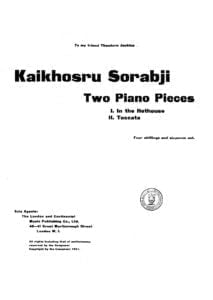
Please, subscribe to our Library.
If you are already a subscriber, please, check our NEW SCORES’ page every month for new sheet music. THANK YOU!
Browse in the Library:
Or browse in the categories menus & download the Library Catalog PDF:
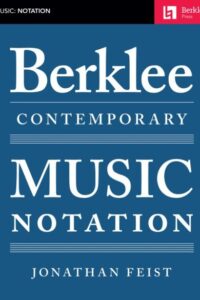
Who was Sorabji?
Kaikhosru Shapurji Sorabji: The Hermit of Modernist Maximalism
In the often-crowded pantheon of 20th-century composers, Kaikhosru Shapurji Sorabji (1892-1988) occupies a unique and enigmatic niche. A composer of staggering ambition, labyrinthine complexity, and self-imposed isolation, Sorabji crafted some of the most monumental, technically demanding, and stylistically idiosyncratic music ever conceived. His work, largely ignored during his lifetime and still challenging audiences today, represents a singular path through modernism – one defined by maximalism, intricate ornamentation, transcendental virtuosity, and a fierce, almost hermetic, independence.
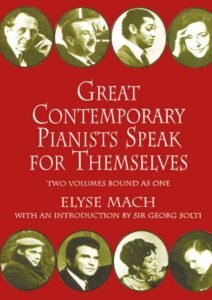
Biography: A Self-Forged Identity
- Birth & Heritage: Born Leon Dudley Sorabji on August 14, 1892, in Chingford, Essex, England. His father was a Parsi engineer from India (thus the Persian-derived name Sorabji), and his mother was English-Spanish. This mixed heritage profoundly shaped his sense of identity, though he felt alienated from both cultures.
- The Name: Around 1914, he legally changed his name to Kaikhosru Shapurji Sorabji. “Kaikhosru” and “Shapurji” were Persian names chosen for their resonance and connection to ancient Persian history and Zoroastrianism, reflecting his deliberate construction of a unique persona.
- Musical Formation: Largely self-taught. He received some piano lessons in his youth but had no formal composition training. His musical education came through voracious listening, score study (especially Bach, Liszt, Busoni, Debussy, Ravel, Scriabin, Szymanowski, Medtner), and wide reading in literature, philosophy, and the occult.
- Early Career & Criticism: Worked as a music critic (under the pseudonym “S. Godfrey”) for outlets like The New Age and The New English Weekly from the 1910s to the 1930s. His critiques were famously acerbic, insightful, and often scathing, particularly targeting English musical provincialism and composers he deemed mediocre (which was most of them).
- The Recluse: Deeply disillusioned by the musical establishment and critical reception to his early performances (which were rare and often controversial), Sorabji gradually withdrew from public musical life starting in the late 1930s. After his mother’s death in 1940, he retreated almost completely to his secluded home “The Eye” in Corfe Castle, Dorset, where he lived with his companion, Reginald Norman Best, until his death. He forbade performances of his music for decades.
- The Ban Lifted: In 1976, pressured by a growing underground interest spearheaded by pianists like Yonty Solomon and Alistair Hinton (who later became his literary executor), Sorabji reluctantly lifted the ban on performances, provided he approved the performer.
- Death: Sorabji died on October 15, 1988, in Winfrith Newburgh, Dorset, leaving behind a colossal legacy of unpublished manuscripts.
Works: Monuments of Sound

Sorabji’s output is vast and overwhelmingly dominated by solo piano music, though he also composed orchestral works, chamber music, organ symphonies, and songs. His works are renowned for their extreme length, density, and technical difficulty, pushing the boundaries of playability.
- Key Masterpieces:
- Opus Clavicembalisticum (1930): His most famous (or infamous) work. A colossal 4+ hour piano epic in 12 movements (including fugues, passacaglias, toccatas, cadenzas), often considered one of the most challenging solo piano works ever written. A summit of contrapuntal complexity and virtuosic display.
- Symphonic Variations for Piano (1935-37): Another monumental work, exploring vast variation forms over an extended duration.
- Sequentia Cyclica super “Dies iræ” ex Missa pro Defunctis (1948-49): A massive cycle of 27 variations on the “Dies Irae” chant, demonstrating his intricate contrapuntal and transformative skills.
- 100 Transcendental Studies (1940-44): True to their name, these studies explore extreme technical and expressive demands far beyond those of Liszt or Chopin.
- Symphonies for Solo Piano: Several exist, including his Symphony No. 2 (“Jāmī”), blending orchestral textures and scope onto the piano.
- Gulistān – Nocturne for Piano (1940): A prime example of his lush, perfumed, and incredibly intricate “Persian”-inspired style.
- Concerti: He wrote several for solo piano and orchestra (e.g., Concerto per suonare da me solo e senza orchestra, per divertirsi), which are symphonic in scale and require superhuman virtuosity.
- Symphonies for Organ: Vast, complex works exploring the sonic possibilities of the instrument.
Analysis of Style: A Universe of Complexity
Sorabji’s style is instantly recognizable yet difficult to categorize. It synthesizes diverse elements into a unique and overwhelming whole:
- Maximalism: This is the defining characteristic. Sorabji embraced extremes:
- Length: Works lasting several hours are common.
- Density: Highly polyphonic textures, often with multiple independent melodic lines woven together in complex counterpoint (influenced by Bach, Busoni).
- Virtuosity: Demands transcendental technique – cascades of notes, complex polyrhythms, wide leaps, immense power, and extreme delicacy. He wrote as if the pianist had four hands.
- Ornamentation: Baroque-like ornamentation (trills, mordents, turns, grace notes) is ubiquitous, often layered and integral to the texture, creating shimmering, kaleidoscopic surfaces (influenced by Scriabin, Szymanowski, Middle Eastern/Persian music).
- Dynamic Range: From barely audible whispers to thunderous, percussive climaxes.
- Harmony: A complex fusion:
- Rooted in late-Romantic chromaticism (Scriabin, Szymanowski, early Schoenberg).
- Freely employed dissonance, clusters, and intricate chord structures.
- Often retained a sense of tonal centers or polarity, even amidst dense chromaticism (unlike strict atonality).
- Incorporated modal inflections, sometimes evoking Persian or Spanish flavors.
- Rhythm: Highly complex and fluid:
- Frequent use of polyrhythms (multiple simultaneous rhythms), cross-rhythms, and nested tuplets (triplets within quintuplets, etc.).
- Tempo often fluctuates wildly, requiring immense control.
- A sense of improvisatory freedom within highly structured forms.
- Form: Often large-scale, complex, and idiosyncratic:
- Favored variations (passacaglias, chaconnes), fugues, toccatas, and intricate multi-movement structures (like the Opus Clavicembalisticum).
- Forms were often expansive and cumulative, building through layered repetition and intensification rather than traditional development.
- Architecture was paramount, even in the densest textures.
- Influences (Assimilated, Not Imitated):
- Ferruccio Busoni: The most profound influence. Busoni’s ideas of “Young Classicism,” the transcendental potential of the piano, the fusion of Bachian counterpoint with modern harmony, and the concept of “Junge Klassizität” resonated deeply. Sorabji dedicated his Opus Clavicembalisticum to Busoni’s memory.
- Franz Liszt: Virtuosity, thematic transformation, large-scale forms, and the symphonic poem concept translated to piano.
- J.S. Bach: Contrapuntal mastery, structural rigor, and the use of forms like fugue and passacaglia.
- Alexander Scriabin: Mysticism, harmonic language, dense textures, and ecstatic climaxes.
- Karol Szymanowski: Sensuous harmony, intricate ornamentation (especially in the “Persian” inspired works like Métopes and Masques), and voluptuous textures.
- Debussy & Ravel: Color, texture, exoticism, and pianistic refinement.
- Mediterranean & Persian Cultures: While not authentically recreating these styles, he evoked their essence through ornamentation, melodic turns, and titles (Gulistān, Jāmī), reflecting his fascination with his Persian heritage and the wider Orient.
- Aesthetic: Sorabji’s music aimed for:
- Transcendence: Pushing beyond perceived limits of instrument, performer, and listener.
- Luxuriance & Opulence: A rich, sensual, almost decadent sound world.
- Intellectual Rigor: Underlying the sensual surface was meticulous structural planning.
- Individualism: A complete rejection of prevailing trends (serialism, neoclassicism, minimalism) in favor of his own uncompromising vision.
Legacy: From Obscurity to Cult Status
Sorabji’s legacy is complex and evolving:
- Decades of Neglect: His self-imposed exile and performance ban meant his music was virtually unknown outside a tiny circle for nearly 40 years. Manuscripts were inaccessible, unplayable, and unpublished.
- The Pioneers (1970s-): The lifting of the ban sparked interest. Pianists like Yonty Solomon, Michael Habermann, Geoffrey Douglas Madge (who made the first complete recording of Opus Clavicembalisticum in 1977), and later Marc-André Hamelin, Jonathan Powell, Fredrik Ullén, and Ronald Stevenson began the monumental task of learning, performing, and recording his works. This required immense dedication and technical prowess.
- Publication & Scholarship: The Sorabji Archive, established by Alistair Hinton (Sorabji’s literary executor), has been crucial in cataloging, editing, and facilitating the publication of scores (primarily by Dover Publications and The Sorabji Music Archive). Scholarly work is gradually increasing.
- Recordings Renaissance: The CD era and digital distribution (YouTube, streaming) have been transformative. Dedicated labels (Altarus, BIS, Toccata Classics, Piano Classics) have released numerous recordings, making this once-inaccessible music available globally. Complete cycles of the 100 Studies and other major works are underway.
- The Cult & The Challenge: Sorabji remains a “composer’s composer” and a cult figure. His music is not mainstream concert fare due to its extreme demands and duration. However, it commands deep respect and fascination among pianists, composers, and listeners drawn to its unique sound world and uncompromising vision. He is seen as the ultimate iconoclast, forging a path utterly independent of 20th-century musical fashions.
- Influence: His direct influence on other composers is hard to pinpoint due to his obscurity, but he stands as a powerful symbol of uncompromising artistic integrity and the exploration of extreme complexity and virtuosity. Composers interested in maximalism, intricate counterpoint, or pushing pianistic limits inevitably encounter his shadow.
- Copyright Controversy: The complex copyright status of his works (involving the Sorabji Archive and publishers) has sometimes been a point of friction within the community of performers and scholars seeking access.
Sorabji: The Solitary Giant
Kaikhosru Shapurji Sorabji was a true original. He inhabited a musical universe entirely of his own making, synthesizing diverse influences into a style characterized by unparalleled complexity, sensuous opulence, and transcendental ambition. His deliberate withdrawal from the world ensured decades of obscurity, but the dedication of pioneering performers and the power of recording technology have brought his extraordinary soundscapes to light. While his music remains challenging and demanding, it offers unparalleled rewards: a journey into a world of labyrinthine beauty, overwhelming power, and intellectual fascination. Sorabji stands as a testament to the power of an utterly individual artistic vision, uncompromising in its scope and ambition, a solitary giant whose monumental creations continue to challenge and inspire. He redefined the possible for the piano and left a legacy that continues to unfold as more performers dare to scale his musical Himalayas.
“In the Hothouse” is one of Sorabji’s most evocative and frequently performed works, serving as a perfect entry point into his dense, sensuous sound world. Here’s a detailed look at this fascinating piece:
Context: Two Piano Pieces (1918)
- Composed: 1918 (early in Sorabji’s career, age 26).
- Publication: First published in 1920, making it one of the earliest Sorabji works available in print.
- The Pair: “In the Hothouse” is paired with “Toccata” – a contrasting, hyper-virtuosic, and structurally complex piece showing his Busoni/Liszt influences. “In the Hothouse” offers the sensual, atmospheric counterpoint.
- Significance: Represents Sorabji’s early mastery of texture, harmony, and evocative atmosphere. It predates his gargantuan works but already displays his unique voice.
“In the Hothouse”: A Sensory Immersion
- Title & Imagery: The title instantly conjures an environment: humid, lush, teeming with exotic, overripe plant life, heavy perfumes, and stifling, enclosed heat. Sorabji translates this sensory overload into sound.
- Form & Structure: Relatively free and rhapsodic. It unfolds as a continuous, organic stream of consciousness rather than adhering to strict classical forms. Think of it as an elaborate, decadent arabesque.
- Style & Character:
- Extreme Sensuality: This is the defining feature. The music drips with lush, complex harmonies and suffocatingly rich textures.
- Harmony: Deeply chromatic, rooted in late Scriabin and early Szymanowski. Expect dense, constantly shifting chords: augmented harmonies, whole-tone inflections, unresolved dissonances creating tension, and sudden moments of surprising consonance like shafts of light piercing foliage. It avoids traditional tonality but gravitates around implied centers.
- Texture: Thick, layered, and constantly in motion. Tremolos, trills, rapid filigree (ornamental passages), and cascading arpeggios create a shimmering, humid haze. Melodies are often embedded within this dense undergrowth rather than standing clearly apart. The writing often requires the pianist to sustain multiple layers simultaneously.
- Rhythm: Fluid and flexible, often obscured by the sheer density of notes and ornamentation. Rubato (expressive tempo fluctuations) is essential. While less overtly complex polyrhythmically than his later works, the rhythmic flow feels organic and improvisatory.
- Dynamics & Articulation: Wide dynamic range, often shifting suddenly between extremes (e.g., thunderous climaxes collapsing into fragile whispers). Articulation varies from sharp staccatos to legatissimo passages that blur together. Pedaling is crucial for sustaining the harmonic haze and creating resonance.
- Ornamentation: Quintessential early Sorabji. Trills, mordents, turns, and grace notes are not mere decoration; they are the texture, creating constant flickering movement and contributing to the claustrophobic, teeming atmosphere. This foreshadows the intricate ornamentation dominating his mature style.
- Emotional Landscape: Evokes opulence, decadence, languor, mystery, stifling heat, hidden dangers, and overwhelming sensory stimulation. There’s a sense of beauty bordering on the grotesque due to its sheer intensity.
Influences Audible in “In the Hothouse”
- Scriabin (Primary): The harmonic language (mystic chords, unresolved dissonance, ecstatic climaxes), the sensual atmosphere, and the use of trills/tremolos are deeply indebted to Scriabin’s late sonatas and poems (e.g., Vers la flamme). Sorabji pushes Scriabin’s decadence further.
- Szymanowski: The opulent textures, perfumed harmonies, and “orientalist” exoticism (though abstracted here) strongly recall Szymanowski’s “Métopes” or “Masques,” which Sorabji admired deeply.
- Debussy: The focus on atmosphere, texture, and harmonic color (whole-tone scales, parallel chords) shows Debussy’s influence, though rendered with far greater density and intensity.
- Ravel: The virtuosic filigree and lush harmonies (think “Gaspard de la Nuit,” especially “Ondine” or “Le gibet”) are a touchstone, again amplified.
- Liszt: The rhapsodic freedom and dramatic gestures hint at Liszt, though filtered through a post-Scriabinesque lens.
Performance Challenges
- Texture & Balance: Maintaining clarity amidst the dense, rapidly shifting textures is paramount. The pianist must carefully voice chords and layers to prevent muddiness while sustaining the essential harmonic haze.
- Ornamentation as Texture: Executing the constant ornamentation smoothly and evenly, integrating it into the melodic and harmonic flow rather than treating it as mere decoration.
- Dynamic Control: Navigating the extreme dynamic contrasts and sudden shifts without sounding jarring. Creating a true pianissimo shimmer within complexity is incredibly difficult.
- Rubato & Phrasing: Applying expressive tempo fluctuations naturally while maintaining the overall structural coherence and forward momentum of the rhapsodic form.
- Pedaling: Using the pedal to create resonance and blend without causing harmonic blurring or loss of rhythmic definition. Requires exceptional sensitivity.
- Stamina & Focus: While shorter than his later works (typically 12-15 minutes), the piece demands intense concentration and physical control to sustain the atmosphere and navigate the technical intricacies.
Legacy & Significance of “In the Hothouse”
- Accessibility: It remains one of Sorabji’s most “accessible” works due to its evocative title, relatively shorter duration, and concentrated expression. It’s a frequent choice for pianists introducing audiences to Sorabji.
- Blueprint: It serves as a crucial blueprint for Sorabji’s mature style, showcasing his core preoccupations: sensuality, harmonic density, intricate ornamentation as texture, and atmospheric evocation, all present in embryonic form.
- Performance History: Despite Sorabji’s later ban, “In the Hothouse” (along with the Toccata) was one of the few pieces occasionally performed during his lifetime (e.g., by Sorabji himself and pianist Reginald Paul) and became a key work for the pioneering generation post-1976 (Yonty Solomon, Michael Habermann, Marc-André Hamelin, Jonathan Powell, Fredrik Ullén).
- Gateway Piece: It functions as a vital “gateway drug” into Sorabji’s world. Its success in conveying its intense atmosphere often encourages listeners to explore his more monumental, complex works.
- Standalone Masterpiece: Regardless of its role as an introduction, it stands as a perfectly formed and powerful piece of early modernist piano writing, a miniature tone poem of extraordinary evocative power.
“In the Hothouse” is a sun-drenched, overripe, and intoxicating immersion into Sorabji’s unique aesthetic. It captures the essence of his sensual maximalism in a concentrated dose, showcasing his debt to Scriabin and Szymanowski while asserting his own distinct voice. Its evocative power, technical brilliance, and relative brevity ensure its enduring place as one of his most beloved and frequently performed works, offering a compelling glimpse into the hothouse of Sorabji’s extraordinary musical imagination.
| Artist or Composer / Score name | Cover | List of Contents |
|---|---|---|
| David Gilmour – Play Guitar With David Gilmour Play Along with audio MP3 embedded tracks on the PDF (Six great classics Guitar & Tablature) |
 |
David Gilmour – Play Guitar With David Gilmour Play Along with audio MP3 embedded |
| David Gilmour Guitar Songbook with Tablature |
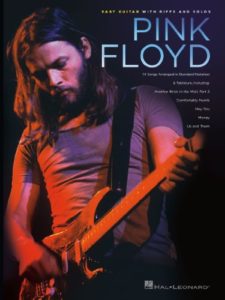 |
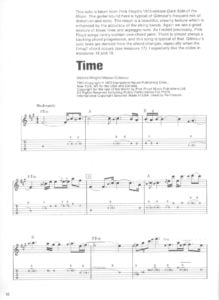 |
| David Gilmour On An Island Guitar TABS with Tablature |
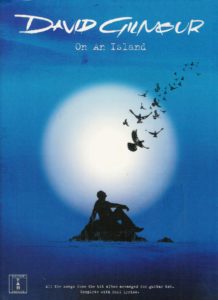 |
David Gilmour On An Island Guitar |
| David Gray – This Years Love | ||
| David Guetta and SIA Titanium Piano Vocal guitar |
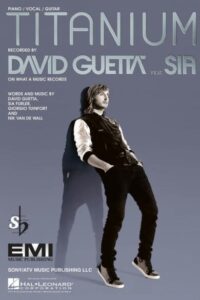 |
|
| David Hodges Christina Perri – A Thousand Years Piano sheet music |
 |
|
| David Lanz Cristofori’s Dream | David Lanz = Cristofori’s Dream | |
| David Lanz – A Whiter Shade Of Pale | David Lanz – A Whiter Shade Of Pale | |
| David Lanz – Collection |
 |
David Lanz collection |
| David Lanz – Sacred Road |
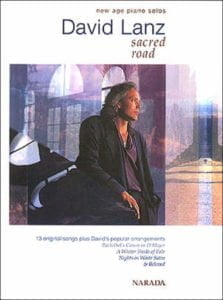 |
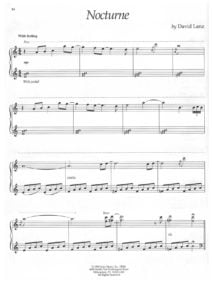 |
| David Lanz – Solos For New Age Piano Book |
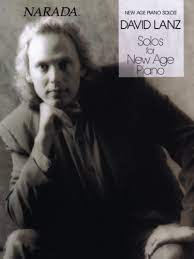 |
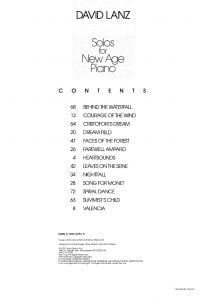 David Lanz – Solos For New Age Piano Book David Lanz – Solos For New Age Piano Book |
| David Lanz & Gary Stroutsos Spirit Romance |
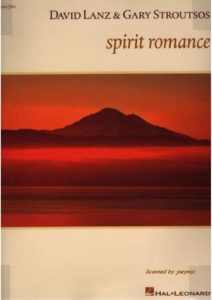 |
David Lanz & Gary Stroutsos Spirit Romance |
| David Lanz Christmas Eve |
 |
David Lanz Christmas Eve |
| David Lanz East of the Moon |
 |
David Lanz East of the Moon |
| David Lanz Piano Sheet Music Collection 2000 2022 Piano Solo |
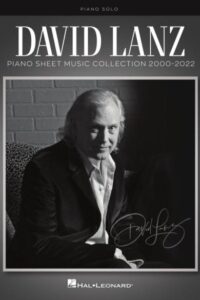 |
David Lanz Piano Sheet Music Collection 2000 2022 Piano Solo |
| David Lanz Songs from an English Garden |
 |
David Lanz Songs from an English Garden |
| David Lanz The Ultimate David Lanz Collection For Easy Piano New Age |
 |
David Lanz The Ultimate David Lanz Collection For Easy Piano New Age |
| David Liebman – A Chromatic approach to Jazz Harmony and Melody |
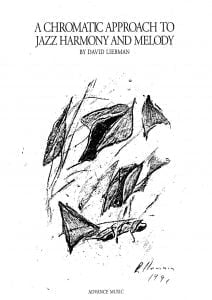 |
|
| David Liebman – How to Approach Standards Chromatically with MP3 audio tracks to Play Along |
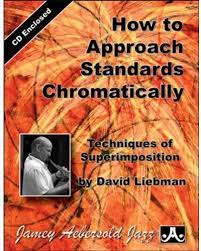 |
David Liebman – How to Approach Standards Chromatically |
| David Linch Dishonored 2 Main Theme | David Linch Dishonored 2 Main Theme | |
| David Nevue – The Kindness of Strangers | David Nevue – The Kindness of Strangers | |
| David Nevue Piano Sheet Music Collection Piano Solo |
 |
David Nevue Piano Sheet Music Collection Piano Solo |
| David Raksin Johnny Mercer Laura piano vocal Vintage Sheet Music |
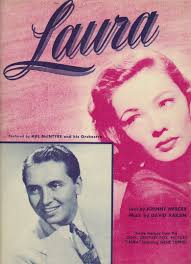 |
|
| David Raksin Laura piano solo sheet music | David Raksin Laura piano solo sheet music | |
| David Russell – Celtic Music Vol. 1 with MP3 audio tracks (Guitar) |
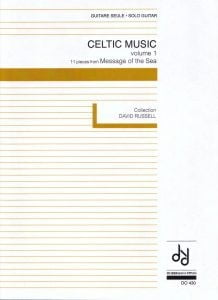 |
Celtic music vol 1 — David Russell – Celtic Music Vol. 1 with MP3 audio tracks Contents |
| David Sanborn Alto Sax Transcriptions By Yasuhiro Matsuda |
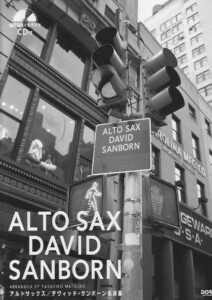 |
|
| De Kers, Robert – Workin’ Hard (as played and transcribed by John Ouwerx) Piano Solo | De Kers, Robert – Workin’ Hard (as played and transcribed by John Ouwerx) Piano Solo | |
| Dead Ringer Meat Loaf Jim Steinman Songbook Piano Vocal guitar Chords |
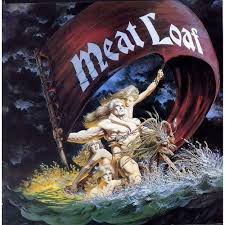 |
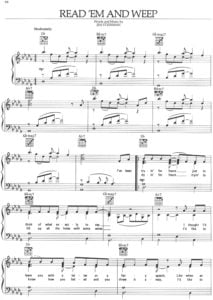 |
| Dean Martin – Moon River | ||
| Death Cab For Cutie – Title And Registration | ||
| Death Cab For Cutie – What Sarah Said | ||
| Death Notex OST Light’s Theme Guitar Tabs Yoshihisa Hirano And Hideki Taniuchi |
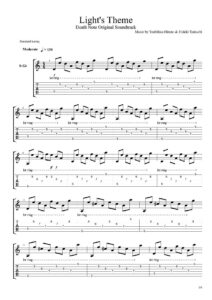 |
|
| Debbie Wiseman – Crows (from Wolf Hall) |
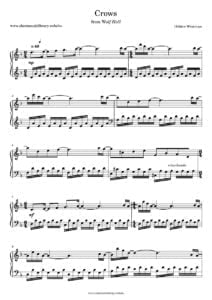 |
|
| Debenedetti Gilbert 354 Piano Solo Pieces All levels from easy to intermediate |
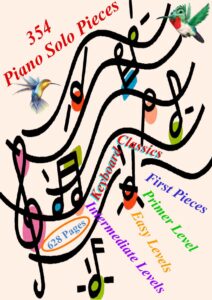 |
|
| Debussy Clair De Lune Guitar and TABs Arr J. Edwards |
 |
|
| Debussy Clair De Lune (Easy Piano For Beginners, Piano Facile Pour Débutants) |
 |
|
| Debussy Clair De Lune (Musescore File).mscx | ||
| Debussy Claude La plus que lente | ||
| Debussy La Mer (Trans. Garban Piano solo) |
 |
|
| Debussy Claude Children’s Corner |
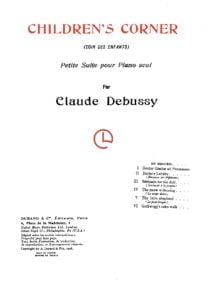 |
|
| Debussy – A Study of the Technique and Function of Orchestration in Selected Works | Debussy – Orquestación (A Study of the Technique and Function of Orchestration in Selected Works of) | |
| Debussy – Childrens_Corner_-_Doctor_Gradus_ad_Parnassum.mscz | ||
| Debussy – Clair De Lune Solo Guitar and TABs Arr by J. Edwards | Debussy – Clair De Lune Solo Guitar and TABs Arr by J. Edwards | |
| Debussy – Clair De Lune Solo Guitar Arr Francis Kleynjans |
 |
Debussy – Clair De Lune Solo Guitar Arr Francis Kleynjans |
| Debussy – Clair De Lune (Easy Piano For Beginners Piano Facile Pour Débutants) (Musescore File).mscz | ||
| Debussy – Clair de Lune Easy Guitar & TABs (from Suite Bergamasque).mscz | ||
| Debussy – Images I 1. Reflets Dans Leau (Musescore File).mscz | ||
| Debussy – La Fille Aux Cheveux De Lin (Guitar arr.) |
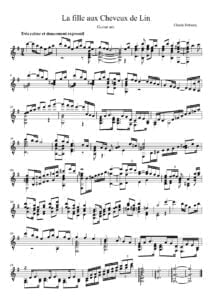 |
|
| Debussy – La Fille Aux Cheveux De Lin (Guitar) (Musescore File).mscz | ||
| Debussy – Prélude à l’aprés-midi d’un faune |
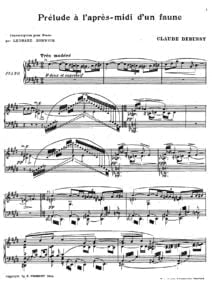 |
|
| Debussy – Prélude Viii La Fille Aux Cheveux De Lin (Musescore File).mscz | ||
| Debussy – Preludes – Book I (Urtext) |
 |
|
| Debussy – Preludes – Book II (Urtext) |
 |
|
| Debussy – Rêverie | Debussy Rêverie | |
| Debussy – The Piano Works Of Claude Debussy by E. Robert Schmitz (Book) |
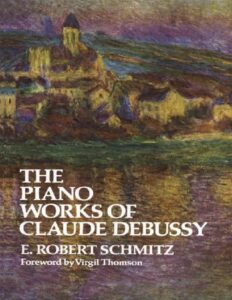 |
|
| Debussy (Book) Eric Frederick Jensen |
 |
|
| Debussy 12 Etudes |
 |
|
| Debussy 1ère Arabesque (Musescore File).mscz | ||
| Debussy Arabesque 1 |
 |
|
| Debussy Arabesque 2 | Debussy arabesque 2 | |
| Debussy Clair De Lune (Guitar arr. with TABs) arr. by J.B. Edwards | Debussy Clair De Lune (Guitar arr. with TABs) | |
| Debussy Deux Arabesques No 1 Andantino By Claude Debussy (Guitar Arr. with TABs by K. Minami) | Debussy Deux Arabesques No 1 Andantino By Claude Debussy (Guitar Arr. by Minami) | |
| Debussy Doctor Gradus ad Parnassum | Debussy doctor gradus ad parnassum | |
| Debussy Images book 1 |
 |
|
| Debussy Images book 2 |
 |
|
| Debussy Jardins sous la pluie | ||
| Debussy La Fille aux Cheveux de Lin Piano | Debussy La_Fille_aux_Cheveux_de_Lin Piano | |
| Debussy La Mer And Other Works For Piano Four Hands |
 |
|
| Debussy Noturne Db | ||
| Debussy Pour le piano Prelude | ||
| Debussy Prélude l’après-midi d’un Faune (piano 4 hands) | ||
| Debussy Rêverie (Piano Solo) (Musescore File).mscz | ||
| Debussy Suite Bergamasque (complete) |
 |
|
| Debussy The Ultimate Piano Collection (78 pieces) |
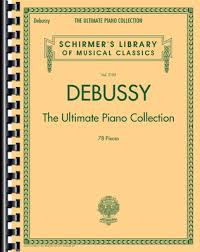 |
Debussy The Ultimate Piano Collection (78 pieces) |
| Debussy Vals Romantique | ||
| Déclaration Séparation (Jeux d’enfants OST) Philippe Rombi | ||
| Deep Purple – Smoke On The Water Sheet Music |
 |
|
| Deep Purple – Signature Licks Vol. 190 ( Guitar Tab Songbook + MP3 audio tracks Play Along) |
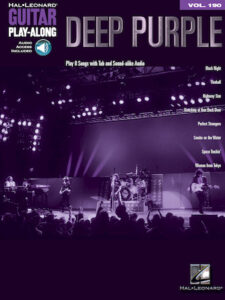 |
Deep Purple – Signature Licks ( Guitar Tab Songbook + MP3 audio tracks Play Along |
| Deep Purple – Steve Morse – Guitar Tablatures |
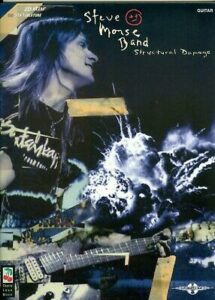 |
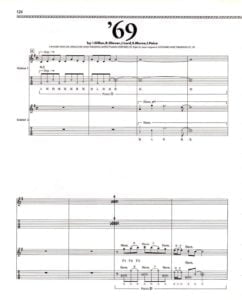 |
| Deep Purple Burn Songbook Guitar Full score |
 |
|
| Deep Purple Greatest Hits (Guitar Signature Licks) TABS |
 |
Deep Purple Greatest Hits (Guitar Signature Licks) TABS |
| Deep Purple Greatest Hits (Guitar Tabs) |
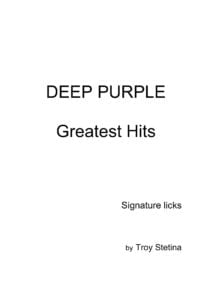 |
Deep Purple Greatest Hits |
| Deep Purple In Rock Guitar Songbook |
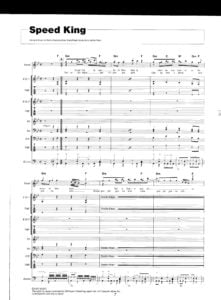 |
|
| Deep Purple Machine Head Guitar |
 |
Deep Purple Machine Head Guitar |
| Deep Purple Perfect Strangers (Piano & Guitar chrods) |
 |
Deep Purple Perfect Strangers |
| Deep Purple Smoke On The Water (Piano) |
 |
Deep Purple Smoke On The Water |
| Deep Purple The Best Of (Guitar Tabs) |
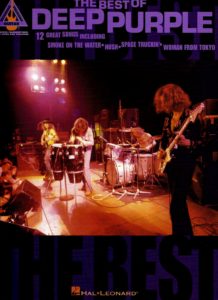 |
Deep Purple The Best Of |
| Defiance – James Newton Howard (Music from the picture Soundtrack) |
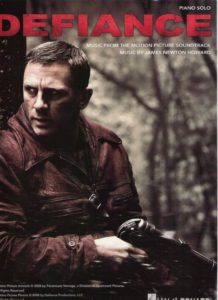 |
Defiance – James Newton Howard (Music from the picture Soundtrack) |
| Define Dancing (Wall.E OST) Thomas Newman | ||
| Deftones – Authentic Guitar Tab Songbook |
 |
Deftones – Authentic Guitar Tab Songbook |
| DELIBES – Sous le dome epais | ||
| Delibes, Léo – Lakmé (partition piano solo arrangement) |
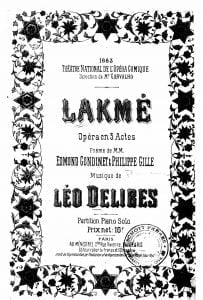 |
|
| Deluxe Encyclopedia Of Jazz Guitar Runs, Fills Licks And Lines (Mel Bay) |
 |
|
| Demi Lovato – Here We Go Again ( Sheet Music) |
 |
Demi Lovato – Here We Go Again ( – Demi Lovato Sheet Music |
| Demi Lovato Skyscraper Piano Vocal Guitar |
 |
|
| Demis Russos Spring Summer Winter And Fall |
 |
|
| Dennis Alexander All Is Calm Grade 5 Piano Trinity TCL |
 |
|
| Dennis Alexander Distant Memories (Sheet Music) |
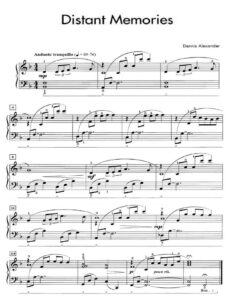 |
|
| Dennis Alexander Reflections |
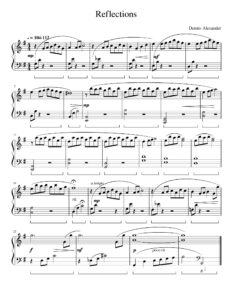 |
|
| Dennis Alexander – A Splash Of Color 2 (Romantic and Contemporary Piano Solos) |
 |
A Splash Of Color 2 by Dennis Alexander (Romantic and Contemporary Piano Solos) |
| Dennis Alexander – Big Chief Running Bear |
 |
|
| Dennis Alexander – Morning Mist | Dennis Alexander – Morning Mist | |
| Dennis Alexander – Nocturne In E Flat Major |
 |
|
| Dennis Alexander – Song Without Word sheet music |
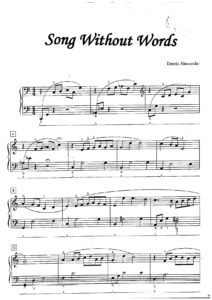 |
|
| Dennis Alexander – Summer Dreams (Piano Solo sheet music) |
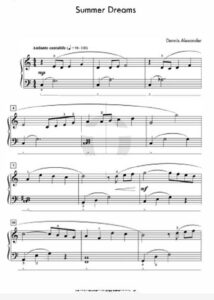 |
|
| Dennis Alexander Especially for Adults Book 1 – 11 Early Intermediate to Intermediate Motivating Piano Solos for Older Students |
 |
Dennis Alexander Especially for Adults Book 1 – 11 Early Intermediate to Intermediate Motivating Piano Solos for Older Students |
| Dennis Alexander Especially for Adults Book 2 – 11 Intermediate Motivating Piano Solos for Older Students |
 |
Dennis Alexander Especially for Adults Book 2 – 11 Intermediate Motivating Piano Solos for Older Students |
| Dennis Alexander Just For Two Collection Of 8 Piano Duets Book 1 |
 |
Dennis Alexander Just For Two Collection Of 8 Piano Duets Book 1 |
| Dennis Alexander Magical Overtures 10 Exciting Piano Solos Student piano library |
 |
Dennis Alexander Magical Overtures 10 Exciting Piano Solos Student piano library |
| Dennis Alexander Magnificent Overtures 9 Motivational Piano Solos Intermediate to late intermediate |
 |
Dennis Alexander Magnificent Overtures 9 Motivational Piano Solos Intermediate to late intermediate |
| Dennis Alexander Sonatinas Book One Simply Sonatinas (Elementary-Intermediate) |
 |
Dennis Alexander Sonatinas Book One Simply Sonatinas (Elementary-Intermediate) |
| Denny Zeitlin I Thou Guitar |
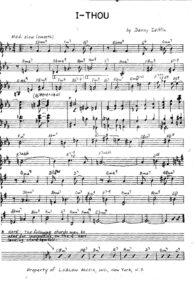 |
|
| Denny Zeitlin Quiet Now Guitar |
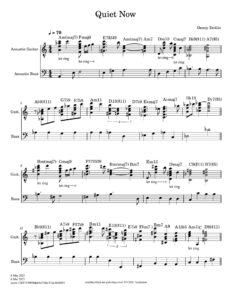 |
|
| Denny Zeitlin Quiet Now Piano |
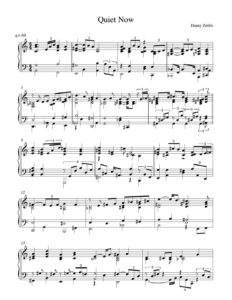 |
|
| Depeche Mode – Ghosts Again (from Memento Mori) Piano Solo | Depeche Mode – Ghosts Again (fromMemento Mori) Piano Solo | |
| Depeche Mode – Home | ||
| Depeche Mode Anthology Songbook Piano, voice & Guitar Chords |
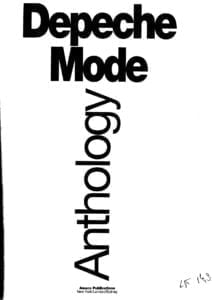 |
Depeche Mode |
| Depeche Mode Songs of Faith and Devotion songbook Piano Vocal Guitar Chords |
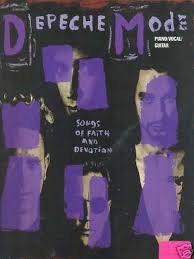 |
Depeche Mode Songs of Faith and Devotion songbook Contents |
| Depeche Mode The Singles 81 85 Songbook |
 |
Depeche Mode The Singles 81 85 Songbook |
| Depeche Mode Ultra Book |
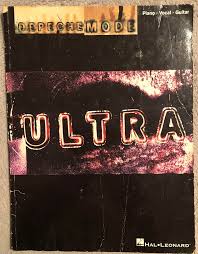 |
Depeche Mode Ultra Songbook Piano Vocal Guitar Chords Contents —  |
| Depeche Mode Violator Songbook |
 |
Depeche Mode Violator Songbook |
| Derek And The Dominos – Layla And Other Assorted Love Songs (Guitar Tab Edition) (Derek And The Dominos) Guitar TABs |
 |
Derek And The Dominos – Layla And Other Assorted Love Songs (Guitar Tab Edition) (Derek And The Dominos) Guitar TABs |
| Descriptive Analyses Of Piano Works – For The Use Of Teachers, Players, And Music Clubs (By Edward Baxter Perry) (1902) | Descriptive… | |
| Despacito Sheet Music – Justin Bieber sheet music |
 |
|
| Desree – Kissing You | ||
| Destinys Child – Emotions | ||
| Destinys Child – Say My Name | ||
| Destinys Child – Stay | ||
| Detective Conan Theme Piano Solo | Detective Conan Theme Piano Solo | |
| Detectorists Johnny Flynn TV Series Theme arr. for Voice or Violin and guitars | Detectorists Johnny Flynn TV Series Theme arr. for Voice or Violin and guitars | |
| Deux Arabesques No 1 – Claude Debussy Guitar Arr. (Musescore File).mscz | ||
| Deux ils, deux elles (Lara Fabian) | ||
| Dexter Gordon – GO! (Jazz saxophone Transcripcions) |
 |
Dexter Gordon – GO! (Jazz saxophone Transcripcions) |
| Dexter Gordon Blue Bossa solo Alto Sax (jazz sheet music transcripton) | Dexter Gordon Blue Bossa solo (jazz sheet music transcripton) | |
| Dexter Gordon Days Of Wine And Roses solo jazz Transcription saxophone | Dexter Gordon Days Of Wine And Roses solo jazz Transcription | |
| Dexter Gordon Jazz Book |
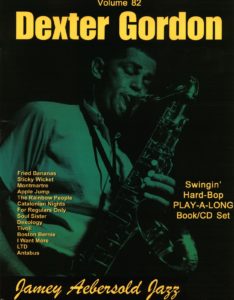 |
|
| Dexter Gordon Jazz Saxophone Solos |
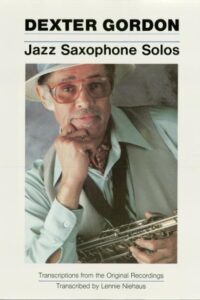 |
Dexter Gordon Jazz Saxophone Solos |
| Dexter Gordon Solo Transcriptions |
 |
|
| Dexter Gordon Sophisticated Giant The Life And Legacy Of Dexter Gordon (Book Biography) By Maxine Gordon |
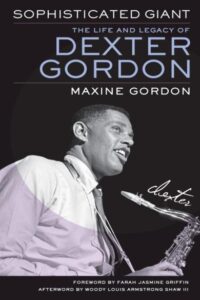 |
|
| Di rose e di spine (Albano) | ||
| Di sole e d’azzurro (Giorgia) | ||
| Diana Krall Best Of (A Selection) |
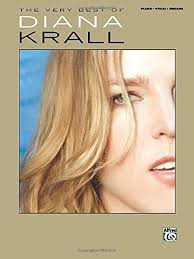 |
Diana Krall Best Of (A Selection) |
| Diana Krall Live In Paris Songbook |
 |
Diana Krall Live in Paris |
| Diana Krall The Collection Vol. 1 |
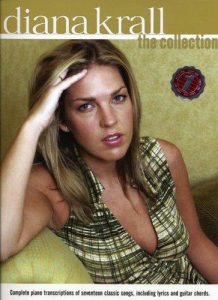 |
Diana Krall – The Collection Vol. 1 |
| Diana Krall The Collection Vol. 2 |
 |
Diana Krall The Collection Vol. 2 contens —  |
| Diana Krall The Collection Vol. 3 |
 |
Diana Krall 3Diana Krall – The Collection Vol. 3 |
| Diana Krall The Girl In The Other Room (songbook) | Diana Krall The Girl In The Other Room | |
| Diana Ross – If We Hold On Together | ||
| Diana Ross A Biography (Book) by J. Randy Taraborelli |
 |
|
| Diana Ross The Best Of Diana Ross And The Supremes Piano Vocal Guitar chords |
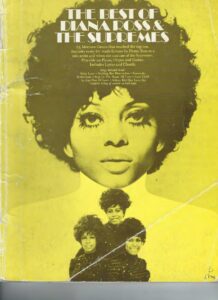 |
Diana Ross The Best Of Diana Ross And The Supremes Piano Vocal Guitar chords |
